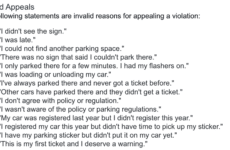By: Nicole M. Chevrette
Posted In: News

Photo credit: Erica Johnson
Amanda Boiteau hands out paychecks to work-study students at Career Development.

Photo credit: Erica Johnson
Every work-study student signs the purple book when they pick up their check.
Work-study students at Salve have a little more cash in their pockets this semester, thanks to a rise in the minimum wage in Rhode Island that went into effect on January 1. The former minimum wage, $6.15 per hour, was raised by sixty cents to $6. 75 per hour. Students who have been re-hired to a department and received a raise are now earning $7.25 per hour.
The legislation was passed by state lawmakers this summer, and took effect on the first of the year. This means that students first saw the effects of the higher minimum wages when they received their first paychecks of the semester on the first Friday after returning to school. On average, students should see a raise of almost ten dollars per paycheck- that will pay for an extra fill on gas, a few more cups of coffee, or even one or two fast-food meals. The minimum wage raise has not affected the staff or faculty at the university, as these professionals earn much more than minimum wage. It has, however, affected some of the staff who deal with work-study students. “We know each department is going to be at the end of their budgets,” says Darlene Fletcher, who coordinates the work-study program. She says that Salve did not know about the increase when budgeting for this year, and so did not include it in their plans. Students should not worry, though. Fletcher points out that departments who have re-hired students cannot rescind the raise that many returning work-study students receive. Departments who are near the end of their budget may simply be hiring less students this semester than they might normally. Fletcher points out that the increase in minimum wage had a lesser effect on the 38 outside agencies (such as the Salvation Army and the Newport Police Department) who hire work-study students from Salve. These agencies also offer higher pay than on-campus jobs, and several positions are still open. Check out the job center at the career development website for more information. About the raise, Fletcher says, “I think it’s good for the students. A lot of them are working themselves through college and need the extra money.” Paula Rancourt of the payroll office is another staff member who was affected by the rate change in a much different way. She is in charge of disbursing paychecks, and had to delete and re-enter the hourly rates for all of the work-study students. This was no easy task, since there are over 500 students who are employed in the work-study program. The two departments who felt the change the most were those that employ the most students, residential life and athletics. In the area of residential life, desk workers are working a few less hours. According to Teresa Brown, assistant director of residential life, a small number of “smaller, low-traffic” buildings will no longer have desk workers. However, the higher-traffic buildings that house more students will still employ desk workers to monitor visitors. “We have found the desk workers to be very effective in those areas, and we will be maintaining the program there,” she says. Residential life is simply not hiring any new work-study students this semester, but Brown says that they do not anticipate any budgetary problems. Lisa Yenush, who works with work-study students in the athletics department, does not anticipate any problems either. Athletics, though not hiring any new work-study students, is not cutting hours or duties. “We have not reduced hours yet. We are just going to see how things play out this semester to see if we need to change anything for the fall,” she says. “We would definitely like to keep as many work-study positions as possible.”













